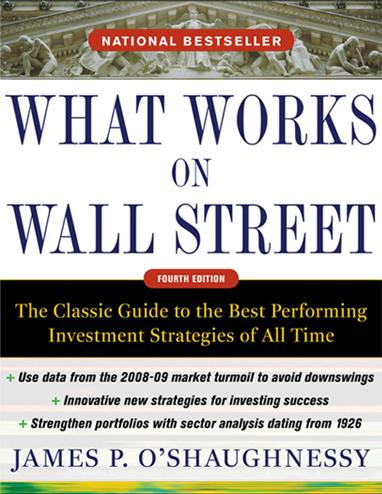TABLE OF CONTENTS
INTRO
CHAPTER 1: Stock Investment Strategies: Different Methods, Similar Goals
CHAPTER 2: The Unreliable Experts: Getting In The Way Of Outstanding Performance
CHAPTER3: The Persistence Of Irrationality: How Common Mistakes Create Tremendous Opportunity
CHAPTER4: Rules Of The Game
CHAPTER5: Ranking Stocks By Market Capitalization: Size Matters
CHAPTER 6: Price-To-Earnings Ratios: Separating The Winners And Losers
CHAPTER 7: EBITDA-To-Enterprise Value
CHAPTER 8: Price-To-Cash Flow Ratios: Using Cash To Determine Value
CHAPTER 9: Price-To-Sales Ratios
CHAPTER 10: Price-To-Book Value Ratios: A Long-Term Winner With Long Periods Of Underperformance
CHAPTER 11: Dividend Yields: Buying An Income
CHAPTER 12: Buyback Yield
CHAPTER 13: Shareholder Yield
CHAPTER 14: Accounting Ratios
CHAPTER 15: Combining Value Factors Into A Single Composite Factor
CHAPTER 16: The Value Of Value Factors
CHAPTER 17: One-Year Earnings Per Share Percentage Changes: Do High Earnings Gains Mean High Performance?
CHAPTER 18: Profit Margins: Do Investors Profit From Corporate Profits?
CHAPTER 19: Return On Equity
CHAPTER 20: Relative Price Strength: Winners Continue To Win
CHAPTER 21: Using Multifactor Models To Improve Performance
CHAPTER 22: Dissecting The Market Leaders Universe: The Ratios That Add The Most Value
CHAPTER 23: Dissecting The Small Stocks Universe: The Ratios That Add The Most Value
CHAPTER 24: Sector Analysis
CHAPTER 25: Searching For The Ideal Growth Strategy
CHAPTER 26: Searching For The Ideal Value Stock Investment Strategy
CHAPTER 27: Uniting The Best From Growth And Value
CHAPTER 28: Ranking The Strategies
CHAPTER 29: Getting The Most Out Of Your Equity Investments
APPENDIX
BIBLIOGRBIBLIOGRAPHY

